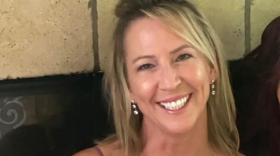-
Shelters are full, violence is intensifying, and advocates warn Colorado can't keep up as calls for help surge statewide.
-
The family that was detained last month in Durango by ICE agents is asking to be voluntarily deported back to Colombia.
-
A family from Colombia whose arrest by ICE prompted a protest in Durango is reportedly preparing to self-deport.
-
The Men's Shed chapter in Jackson Hole, Wyoming, brings good vibes to tackle serious themes
-
Students, families, and first responders mourn together.
-
Mental health experts urge Colorado parents to support kids emotionally as the school year begins. Tips include setting routines, limiting screen time, and watching for signs of distress.
-
Local rancher encourages other to reach out for mental health support during recent fire evacuations
-
One in three women and one in four men will experience physical violence from an intimate partner at some point in their life, according to the CDC. In Colorado it's roughly 36% and 30% respectively.
-
A quiet moment at the bird feeder inspires a poetic reflection in this edition of the KSJD Outdoor Report from host Lacy McKay.
-
Gen Zers are increasingly worried about a warming world. Sarah Newman and Leslie Davenport, who presented at Aspen Ideas Festival over the weekend, are providing resources to help navigate those emotions.

Play Live Radio
Next Up:
0:00
0:00
Available On Air Stations










